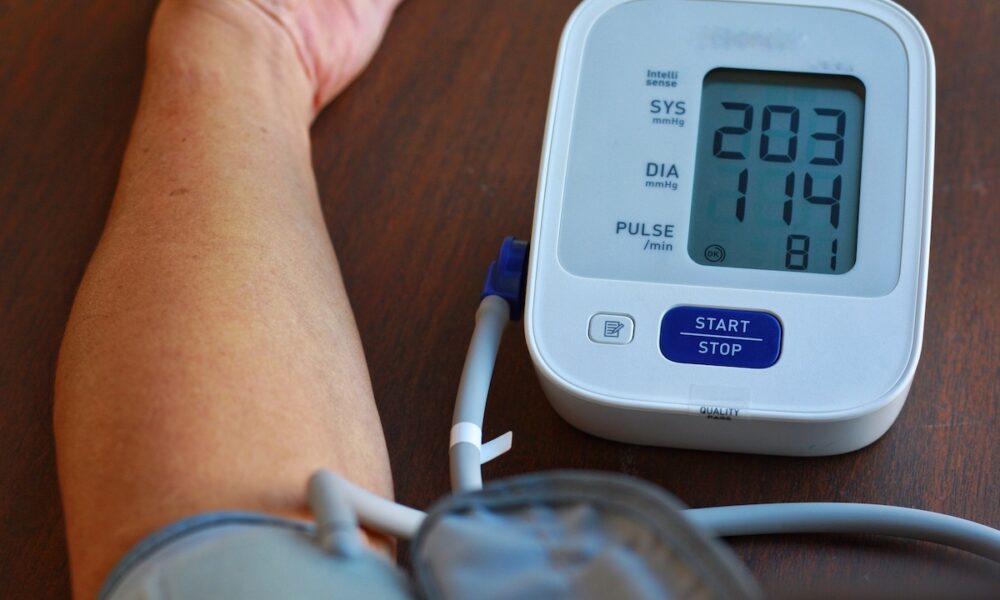Testosterone replacement therapy (TRT) does not usually cause high blood pressure directly, but in some men it can lead to fluid retention, which may raise blood pressure. It can also increase red blood cell count (polycythemia), making blood thicker and potentially stressing the cardiovascular system. For this reason, blood pressure and hematocrit levels should be monitored regularly during TRT.
Testosterone replacement therapy (TRT) is used a lot to treat men with low levels of testosterone and can help lower symptoms such as fatigue, loss of muscle mass and lower sex drive. TRT can affect the blood pressure of certain people, the relationship between testosterone and hypertension is complex and depends on several factors. Here you can read how to see your blood pressure figures.
How Testosterone Replacement Therapy affects blood pressure
Testosterone plays an important role in the regulation of the vascular function, and its effect on blood pressure can be both useful and harmful. Here are some ways that TRT can affect your blood pressure:
Increased red blood cell production (multibacterial inflammation)
TRT stimulates the production of red blood cells, which can lead to a condition called polybacteremia. This can cause the blood to become thicker (high hematocrit levels), increase vascular resistance and increase blood pressure. When the blood becomes more thick, the heart must work hard to pump it. This can lead to hypertension.
Sodium and Liquid Retention
Some men that use TRT feel a slight retention of fluids. That can cause an increase in blood volume and next to that an increase in blood pressure. This effect is more common in men who are taking high doses of testosterone. So always talk to your doctor about the dosage of TRT you take.
Effects on the Renin-Angiotensin System
Testosterone can affect the renin-angiotensin-aldosterone system (RAAS). That system plays an important role in blood pressure regulation. Some studies show that TRT can activate this system and it can lead to vasoconstriction (narrowing of blood vessels) and increasing blood pressure in some people.
Potential changes in weight and fat distribution
TRT can help reduce the fat mass and increase the muscle muscle, which can improve metabolic health and potentially reduce blood pressure in overweight people. But weight gain due to increased muscle mass or changes in body composition can sometimes have the opposite effect and can put more pressure on the cardiovascular system.
Does TRT always raise blood pressure?
No, TRT does not always cause an increase in blood pressure. Some studies have shown that testosterone can have a neutral or useful effect on blood pressure, especially in men with metabolic problems or that are too fat. Testosterone can add to vasodilation (expansion of blood vessels), which can help lower blood pressure in some people. So the effects vary a lot depending on the state of human health, dosage and how the body metabolizes testosterone.
Who is at risk for hypertension-induced TRT?
Some people may be at a higher risk of getting an increase in blood pressure during TRT, including:
- Men with preexisting hypertension
- Older individuals or those with cardiovascular disease
- Men who develop polycythemia while on TRT
- Men that are on too high doses of testosterone
Monitoring and management of arterial pressure for TRT
Regular check ups of blood pressure and hematocrit levels is important if you take TRT. Below are some steps to minimize the risk of hypertension when you are on TRT:
- Regular blood pressure check ups and hematocrit testing can help you identify problems early on.
- Remaining hydrated: Drinking enough water helps prevent blood thickening caused by TRT.
- Dose adjustment: When blood pressure is too high, lower doses or different methods of administration of TRT (such as gel instead of injection) can be good.
- Exercise and diet: A healthy diet and regular exercise can help you prevent increased blood pressure.
- Therapeutic Phlebotomy: If hematocrit levels become too high, a doctor may recommend donating blood to reduce viscosity and lower blood pressure.

